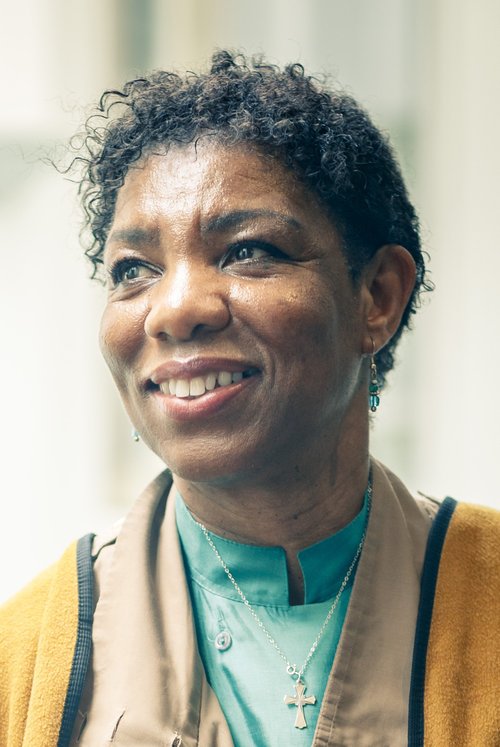 By the Revd Novette S. Headley, Chair of the Birmingham Methodist District.
By the Revd Novette S. Headley, Chair of the Birmingham Methodist District.
Bring your oil to light the lamp. Don’t let the flame burn out. Trim the wick, light the candle and don’t put it under a bushel. The wise young girls, awaiting the Bridegroom filled their flasks with the oil of the Spirit, and were able to endure the long wait for His arrival.
But we don’t want to be like the girls who slept whilst they waited – we want to be alert, awake, playing our part in creating God’s community of love, nurturing the Body of Christ, even as we wait. So it is, for the elders and descendants of the Windrush Generation.
The Methodist Church celebrates those African-Caribbean elders – known as the Windrush Generation - who arrived at these shores with such hopes and expectations. Many of that generation of young people who arrived between1948-1970 – came with skills and training, education and degrees, as well as manual enthusiasm to work.
They staffed our hospitals and care homes then, as new arrivals do today, worked on the trains and buses, and in the factories. We often heard the story that you could leave one job on Friday evening and walk into another on Monday morning. Most did not come to stay, but to work for five years, and then return to the Caribbean. But as many Ukrainians will find - children, family, community, and friendship caused my parents’ generation to remain in the UK.
Being part of a church family was essential for the young men and women who arrived from the Caribbean. You knew that your parents back home expected you to be in church on Sunday – even if you were out partying on Saturday night!
We all know the stories of people being rejected by English ministers when they turned up for worship on Sunday mornings. However, there were individuals in Methodist churches in our cities that did welcome people of Caribbean heritage, and those churches grew and were enriched by the new arrivals.
In Birmingham, the Methodist Church became vibrant with Caribbean Harvest Festivals, youth gospel groups and fund-raising concerts; summer inner-city Caribbean worship services that drew together churches from across various circuits; church day-trips to the sea-side – packed up with rice, chicken, seasoned fish and hard-dough bread dinners like we weren’t going to eat again for the whole weekend!
Our parents took part in Campaign for Nuclear Disarmament marches, and the young people shared in the Christian Aid or Junior Mission Association sponsored walks and collecting each year.
But where are the children and grandchildren of the Windrush Generation to be seen in our Church today? The grandmothers have remained faithful to the local church – but like the indigenous community we have lost contact with a vast number of their grandchildren.
Perhaps, a legacy of the Windrush Generation for the Methodist Church is to learn that we need to see the wealth of human beings, personalities, energy, vision and talent that God is always sending into our midst, and not to overlook people.
We need to learn how to be an inter-generational church where the young and the elders are encouraged to learn from each other. Might young people ask the elders, “How did you keep going in the face of community hostility? What sustained you?” Might the elders ask the young, “What are your hopes and dreams for the world in which we live? How will you create the kind of world you want to live in?” And to each other, “Where does God, in Jesus Christ, feature in our lives?”
There needs to be a flame – fuelled by the oil of the Spirit. The Spirit who inspires love, compassion, joy and dignity. The Spirit who is tender-hearted and yet passionate for justice and truth.
The celebration of the 75th Anniversary of the Windrush Generation points to the Spirit of God who quietly accompanied our mothers and grandmothers to live out their Christian faith. The Spirit that enabled our fathers and grandfathers to live with courage and dignity because they knew who they were, and whose they were. Together they were followers of Christ, saved by grace, and who continue to be held in the embrace of God.